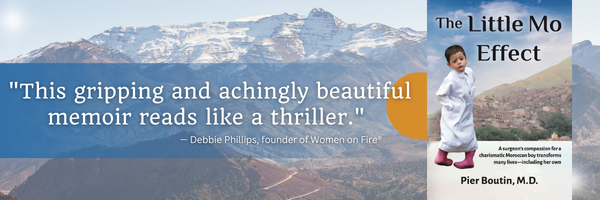A doctor recently wrote us to complain about one of our blogs.
Her complaint was that we are wrongly telling people not to trust their doctors. She told us how tragic it was when she gave people advice about how to treat their cancer – and they doubted her. To this doctor, being questioned should not happen. She should be trusted without question.

To be frank, we think this doctor’s attitude is part of the problem, and we’re part of the solution. But everyone in our community needs to think this issue through for themselves. It’s a question that speaks not only to the core of our mission, but also to how women have to act to take care of themselves today.
To start with – the blog in question
The blog in question was “Why your doctor’s wrong about thyroid testing.”
There’s actually no dispute about the problem. Conventional and alternative medical experts agree that tens of millions of women with hypothyroidism are not diagnosed, and that tens of millions more suffer from subclinical hypothyroidism.
So clearly, if the health care system was working well, women wouldn’t suffer from this epidemic. We’re blaming the doctors, as the headline makes clear. Are we being fair?
Well, if you go to an alternative doctor with symptoms of hypothyroidism, you’ll often receive a range of tests, because in holistic thinking, in such cases the thyroid is rarely the only thing out of balance in your endocrine system. Once your doctor has a complete picture, you’ll likely be given a range of options to support your thyroid function.
But if your doctor practices conventional medicine, your thyroid will probably be tested in a limited way. For most women, the results will come back in the “normal” range and you’ll be sent home without any suggestions for relief. If your tests indicate thyroid disease, you’ll be typically given drugs, treating the thyroid in isolation.
In the big picture, hypothyroidism is only one facet of a huge range of endocrine disorders afflicting women. The causal factors are diet, stress, lifestyle factors, environmental toxins, and the accumulated experiences of a lifetime. With this perspective, conventional doctors obviously don’t cause the epidemic. But they represent 98% of the physicians in the United States. And we think their reductive view of the thyroid is the biggest single reason the health care system doesn’t serve women well who are suffering from this illness.
There’s history here that’s worth considering
Not very long ago, doctors were the most trusted profession in America. In TV shows, they were portrayed in various mythical forms — reliable father figures (Marcus Welby), dedicated geniuses (Grey’s Anatomy, House), embattled lifesavers (MASH, ER). Many real doctors went into the profession because of the unique combination of social status and self-esteem it offered – not to mention income and job security. Doctors were on a pedestal. Not coincidentally, most of them were male.
The habit of trusting your doctor without questioning him was also ingrained in the profession. To give just one example: in the 1960s, doctors lobbied Congress not to require drug companies to include descriptions of side effects along with the prescription – something that seems incredible today – because they didn’t want patients evaluating for themselves the risk/reward ratio of taking a drug. They should rely on what their doctor chose – or chose not – to tell them. Not coincidentally, that lobbying occurred over a very important issue for women: birth control pills!
For many years now, doctors have been discussing why they are losing patients’ trust. In reviewing their theories, it’s interesting that they rarely blame themselves or their medicine. (I invite you to go online and search “reasons for loss of trust in doctors”.) But that’s not true for patients. Patients often blame their doctors directly. They report feeling that conventional doctors don’t listen to them, don’t fully answer their questions (especially about drug side effects), are shills for the drug companies, are more motivated by profit than by caring, aren’t knowledgeable about alternative treatments, and aren’t successful in relieving their symptoms and conditions. That’s plenty for conventional doctors to chew on.
For all of these reasons, patients have been finding solutions outside conventional medicine. In the 1990s, patient visits to alternative practitioners exceeded those to conventional ones. This preference has been growing ever since.
Let’s highlight one causal factor
In the last 35 years we’ve seen an explosion in the incidence of chronic and degenerative disease, including those that are hormonally and metabolically based. To an unusual degree, those increases have afflicted women more than men. And it’s in these diseases that conventional medicine has been least successful – they’re called “chronic” because doctors have no expectation of curing the patient. They only expect to manage the symptoms and the patient’s inexorable decline.
Patients aren’t happy to be told their cases are hopeless. It’s in the context of that failure that we have to understand why women have so quickly lost trust in conventional doctors. And in our view, that loss of trust is far from over. Until women suffer less from such conditions, their trust in conventional doctors will fall further.
So what’s WHN’s role in this situation?
Our role is to help women who aren’t well-served by the health care system understand what options they may have to help themselves. We can’t do that without sometimes criticizing conventional doctors and the medical perspective they represent. But it also involves criticism of alternative practitioners too, many of whom are motivated by ideology more than by evidence-based medicine – and especially of those “influencers” who may have no medical training or expertise at all, and whose advice is often especially misleading.
On a positive note, we think a new understanding of human health is emerging from all the current suffering. This will be an understanding based on how the body actually works – which is holistically, not reductively (where each part is treated in isolation). And from this new understanding there will come a new medicine, one that combines the best of what we now call conventional and alternative medicine. In that new system, the woman and her doctor will be partners in her health care. But going back to trusting your doctor without ever questioning? That is unlikely.










